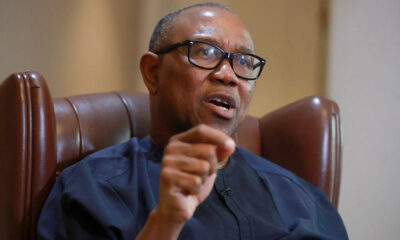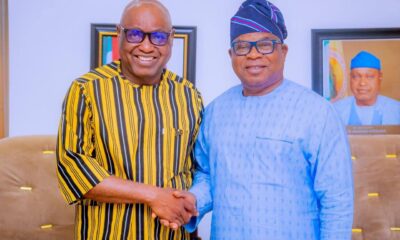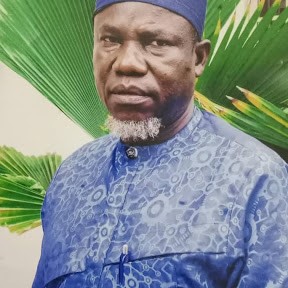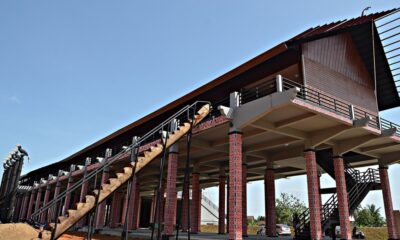Africa
“I Can Assure You”: A Phrase Often Overused by Nigerian Political Leaders, by Isaac Asabor
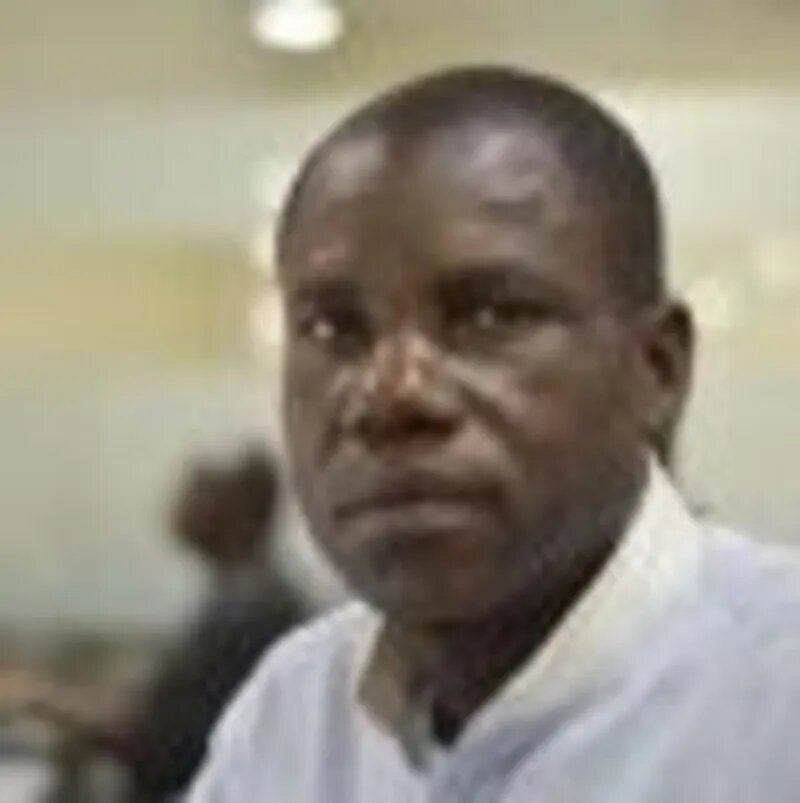
In the corridors of Nigerian politics, certain phrases have become so commonplace that they seem to lose their meaning over time. Among them, none stands out as more overused, and, some may argue, more hollow, than the oft-repeated declaration: “I can assure you.” This phrase, typically uttered by politicians in positions of power, has been wielded in moments of crisis, failure, or disappointment to pacify a weary populace. However, the constant repetition of this phrase has caused it to lose credibility and effectiveness over time.
When Nigerian political leaders declare “I can assure you,” it often signals a deflection rather than a resolution. For instance, during times of economic downturn, insecurity, or fuel scarcity, government officials are quick to “assure” citizens that better days are coming. However, these assurances are frequently followed by minimal action or tangible improvements. This reliance on rhetoric, instead of genuine reform or policy change, has led to growing skepticism among the public.
Consider the case of Nigeria’s power sector. For decades, successive administrations have promised to fix the country’s erratic electricity supply, with numerous ministers and heads of parastatals beginning their speeches with the same assurance. Yet, the national grid continues to collapse, and citizens are forced to rely on generators or solar power to survive.
Similarly, promises of job creation are repeatedly given as an assurance to Nigeria’s large youth population. In 2023, as unemployment figures skyrocketed and inflation hit record highs, politicians routinely used “I can assure you” to pacify the public, promising that job creation and economic recovery plans were in place. Yet, to date, the tangible benefits of these assurances remain largely invisible, with many Nigerians struggling under the weight of economic hardship.
To understand why this phrase has become a favorite among Nigerian politicians, one must consider the role of political optics. “I can assure you” serves as a verbal Band-Aid, designed to quickly soothe public unrest or discontent without addressing the root cause of the problem. It momentarily placates citizens who are waiting for solutions, buying time for leaders to either delay action or deflect responsibility.
This tactic has been especially prevalent in the aftermath of major national crises. Whether it’s the #EndSARS protests, high inflation rates, or the rising cost of fuel, “I can assure you” has been deployed as a way to temporarily cool tempers while tangible responses remain elusive.
For example, in 2020, during the heat of the #EndSARS protests, a movement that rocked the country and saw Nigerian youth taking to the streets to demand an end to police brutality, political leaders were quick to assure protesters that their demands would be met and that necessary reforms were underway. Yet, nearly four years later, the issues that sparked the protests remain unresolved, with many citizens questioning whether the assurances given were ever genuine.
One of the major issues with the overuse of “I can assure you” is that it diminishes accountability. If political leaders were judged on the assurances they have given, many would fail spectacularly. However, the phrase is so frequently used, and often forgotten by the time the next crisis hits, that no one is held responsible for unfulfilled promises.
For example, during election campaigns, politicians offer assurances on everything from job creation to infrastructure development. Once in office, however, the specifics of these assurances fade away, leaving the citizens with empty words and no real progress. This lack of follow-through is not unique to any political party but has become a culture across Nigeria’s political landscape.
In the build-up to the 2015 general elections, for instance, the ruling All Progressives Congress (APC) assured Nigerians that the issue of insurgency in the northeastern part of the country would be a thing of the past within a matter of months. President MuhammaduBuhari’s administration “assured” the nation that Boko Haram’s reign of terror would be swiftly ended. While some progress has been made, the insecurity crisis has since evolved into a broader range of threats, including banditry, kidnapping, and farmer-herder clashes, leaving many Nigerians feeling that the assurances were nothing more than campaign rhetoric.
Repeatedly hearing “I can assure you” from leaders who fail to deliver has nurtured a deep sense of cynicism among Nigerians. Citizens are increasingly less inclined to believe these words and more likely to demand action. The disconnect between what is assured and what is delivered has eroded trust in public institutions and political leadership.
This skepticism is evident in the public’s response to recent economic policies. When Nigeria’s leadership assured citizens that removing fuel subsidies would benefit them in the long run, the immediate result was skyrocketing prices and widespread hardship. While citizens were assured that the government had their best interests at heart, the realities on the ground told a different story.
The issue of fuel subsidy removal is a classic example of overused assurances. Time and again, citizens have been “assured” that the removal of subsidies is necessary for the growth and sustainability of the economy. Yet, when such policies are enacted, the burden of adjustment disproportionately falls on the masses, while politicians and those in power remain largely insulated from the harsh realities of inflation and rising costs of living. This gap between promise and outcome has left citizens disillusioned.
The phrase “I can assure you” is not only problematic because it is overused but also because it is often accepted without being challenged. The Nigerian media, which plays a crucial role in holding leaders accountable, has at times been complicit in amplifying these assurances without enough scrutiny.
However, in recent years, the rise of independent media and investigative journalism has put some pressure on political leaders to be more accountable. Civil society organizations and citizen journalists have also played a key role in questioning the assurances given by leaders, especially in the era of social media, where political statements are dissected and analyzed almost instantly.
Nigerian leaders must recognize that the era of placating citizens with empty assurances is fast coming to an end. The public is more informed, vocal, and impatient than ever before. Politicians can no longer rely on mere rhetoric to carry them through their terms in office. Instead, they must back their words with decisive actions, measurable progress, and transparent policies.
The overuse of “I can assure you” is not just an issue of political language but one of governance. If leaders cannot deliver on their promises, they should refrain from making them. Nigerians deserve leaders who take action, hold themselves accountable, and offer more than hollow reassurances.
In conclusion, “I can assure you” has become a tired phrase in Nigerian politics, one that represents more of what has gone wrong than what could go right. It’s time for a new lexicon of leadership, one that emphasizes action over words and results over rhetoric. Nigerians are waiting, and they will no longer be placated by promises. If Nigerian politicians want to regain the trust of the public, they must replace assurances with visible change, addressing the pressing issues of governance, insecurity, and economic hardship that plague the nation. The clock is ticking, and the people are watching.





